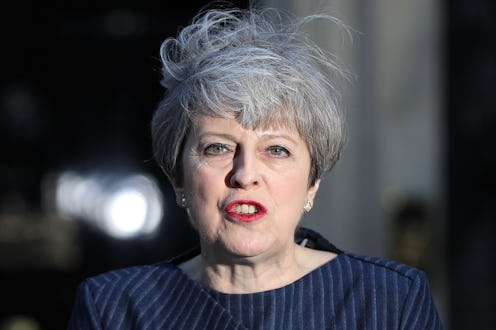News
How Do British Elections Work? It's Definitely Different From America's

British Prime Minister Theresa May sent shock waves through the international political scene Tuesday when she called for the country to hold a snap election in June. This somewhat confusing term highlights some differences between the British and United States electoral systems, and probably has you wondering how British elections work in general. The Brits organize their elections very differently than the good old USA, but it's not too confusing once you get the general concept.
Just like the U.S., Britain has a bicameral legislature, but they have the House of Lords and House of Commons instead of the House of Representatives and the Senate. They work together to create legislation and debate on public policy — all that good government stuff. However, unlike the U.S., British citizens don't vote for members of the House of Lords; they're appointed by the queen following the advice of the prime minister.
So that leaves the House of Commons to choose the prime minister. The U.K. is broken up into several hundred voting districts (analogous to congressional districts), and voters select their Member of Parliament (MP) to represent them in the House of Commons. Whichever party gets the majority of the seats in the House of Commons then becomes entitled to select the prime minister. That's how May was chosen without a national election after previous prime minister David Cameron resigned following the Brexit referendum. Instead of citizens voting, the Conservative Party just chose who its new leader would be internally.
Another major difference between British and American elections is that the Brits can choose to shorten the interval between their national elections, which is exactly what happened on Tuesday. While elections must be held at least every five years according to the Fixed-term Parliaments Act of 2011, the prime minister can call for an election at any time. If two-thirds of the MPs in the House of Commons vote to approve the measure, the election can be held.
Theoretically, then, May could be unseated by the very election she just asked to hold. If the major opposition Labour Party were to overtake the Conservative Party in MP seats, they would get to pick the prime minister and May would probably have to resign. That's pretty unlikely, since recent polls indicate that the Conservatives have a nearly 20-point lead over Labor, but it's still a potentially risky move. If things go according to May's plan, Conservatives will gain seats in Parliament, proving that the mandate for Brexit is stronger than critics allege. But there are a lot of potential twists and turns before that might happen, so make sure to stay tuned as this story develops over the next few months.